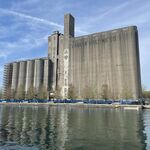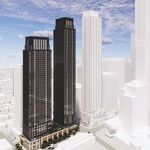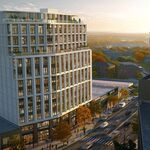I've explained to you the issues of the SRT conversion plenty of times before, and how the issues with that project were completely different from the rest of the Transit City project (well some of the issues were common but in general its an isolated incident). As a recap, the issue with the SLRT plan was that it was just a downgrade of the refurbishment plan, and in many ways the SLRT was a downgrade from the existing SRT. It would take an existing Light Metro Line and kneecap it with worse capacity per m of train, connection to other LRT lines would significantly reduce its maximum potential frequency, all while sticking with the exact same problematic transfer and allignment the current SRT has.
As for Sheppard and Eglinton, yes you are right the problem iON has with curves isn't present, but that's not the only problems LRT have compared to busses as I have brought up, which include lower acceleration, deceleration, and reduced top speeds. As I have showed you, when Vancouver studied the Surrey LRT, they found that it only increased travel times on average by a minute, and that was a straight corridor without any curves. This was done as a proper assessment in order to figure out what to build in the region, and not what Transit City was which was politicians choosing LRT as their mode from the outset, and trying to justify their choice afterwards in the succeeding reviews and studies. They realized that aside from redevelopment, LRT was not suitable as an actual rapid transit mode if the goal is to quickly transport people, so they favoured a SkyTrain extension which would bring more development, AND serve more people with actually rapid transit.




